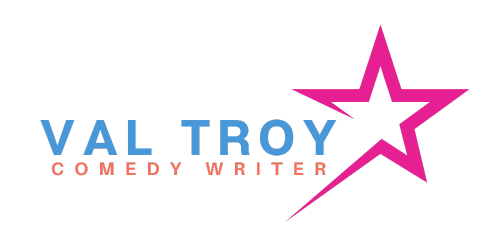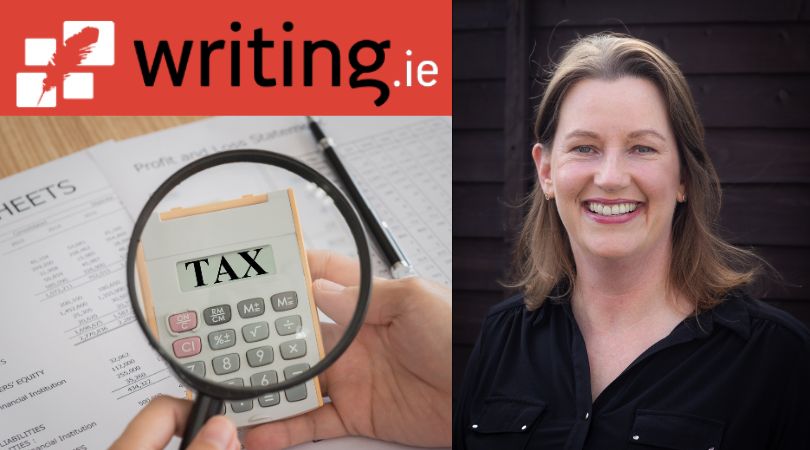As the saying goes there are three certainties in life: death, taxes and learning new things. This article will enable us to learn new things about taxes. I am an accountant and a comedy writer, an admittedly unlikely combination, and if one were to draw a Venn diagram of the two, this article would sit nicely in the intersection. Can taxes be fun? Well, no – not really but this taxing tale has a happy ending.
Hearty congratulations to everyone who makes an income from writing. What a privilege it is to attach a financial reward to our creative endeavours. The flip side of income is tax but there is relief available. Income earned by writers from the publication or production of their work is exempt from income tax in Ireland up to €50,000 per annum. But as they say…terms and conditions apply.
The exemption will only apply from the year in which the application is made. So don’t delay. If you foresee earning income from your book or play then plan ahead and prepare your application in the relevant tax year. In Ireland, the tax year runs from 1st January to 31st December. The exemption applies to PAYE only so PRSI and USC are still payable.
Ultimately, it’s the Revenue’s call whether or not a project will qualify for the exemption but their key consideration is that it’s an original and creative work and it must be generally recognised as having cultural or artistic merit.
Per Revenue guidance, a work will be deemed original and creative if it is a unique work of creative quality brought into existence by the exercise of its creator’s imagination.
A work will be regarded as having cultural merit only if by reason of its quality of form and/or content it enhances to a significant degree one or more aspects of national or international culture.
A work will have artistic merit only if its quality of form and/or content enhances to a significant degree the canon of work in the relevant category.
Separate criteria apply for non-fiction work, for example works relating to arts criticism, art history, artists’ diaries as well as literary translations, criticisms, history or diaries which must incorporate the author’s unique insights into and make a significant contribution to the subject matter by casting new light on it or changing the generally accepted understanding of it. Non-fiction for the purposes of the exemption also includes biographies and autobiographies which again contain unique insights, are pioneering and make a significant contribution to the subject matter.
Some works are excluded from the scheme e.g. if they are neither original and creative or are not recognised as having cultural or artistic merit. Educational or trade books, articles, work for publicity purposes, photos, drawings or sculptures which serve a utilitarian function are excluded.
To qualify for the scheme the applicant (an individual, not a company) must be resident or ordinarily resident and domiciled in one or more EU states, in another EEA country or in the UK.
Application is made by completing an Artists’ Exemption Claim form which is available from the Revenue website. They require a sample of your work e.g. for a book they will need the full electronic version or a published copy of the book. For a play, they require a copy of the script along with a signed production contract. Musical compositions, paintings and sculptures are also covered by the scheme. The application form has details of where to send your completed application.
The determination from the Revenue covers both the original work submitted as well as any future work in the same category (as long as each meets the guidelines.) Separate applications are required for works in different categories. For example, if you initially apply for a book and subsequently apply for a play, a new application is needed for the play.
Some other payments to writers are also exempt from tax e.g. Arts Council Bursaries paid directly to you, residencies paid directly to you by the Arts Council (regarding qualifying work only), Cnuas payments under the Aosdana Scheme, payments from abroad from the sale of qualifying works and advance royalties.
If you receive advance royalties relating to a book to be published then an application must be submitted to Revenue in the tax year the royalties are paid in order for the royalties to be exempt. Once more, timing is everything, if it’s left too late then you may miss out.
A point to note here – if you apply for an exemption on advance royalties in the correct tax year but you don’t get a determination from the Revenue in that year then you must pay the tax in that year. If the project is deemed exempt the following year, then any overpaid tax will be repaid. And remember, any advance royalties paid before the year of application will miss the boat.
There are various other terms & conditions and restrictions as well as rights of appeal. All those details can be found on the Revenue website regarding the Exemption of Certain Earnings of Writers, Composers and Artists or for further details, consult your tax/financial adviser.
In terms of the three certainties in life that’s my take on two of them, taxes and learning new things. Regarding death, perhaps I’ll leave that topic to the crime writers.
Article reproduced with permission from www.writing.ie the complete online writing community of which I am a member.



Recent Comments